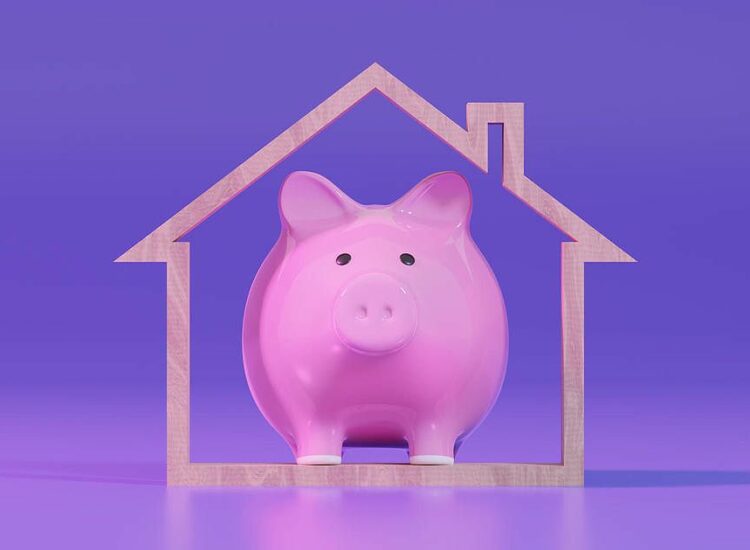Millions struggle with overwhelming debt, juggling multiple payments and high interest rates. Is a debt consolidation loan a good idea for you? This article examines how a debt consolidation loan works, outlining the advantages and disadvantages to help you decide if it’s the right solution for your specific financial situation. We’ll weigh the pros and cons, considering the potential for simplified repayment and lower monthly payments against the possibility of paying more interest overall. Careful consideration of your finances is key before making a decision.
Toc
- 1. How Does a Debt Consolidation Loan Work?
- 2. Debt Consolidation Loan Pros and Cons
- 3. Is a Debt Consolidation Loan a Good Idea for My Situation?
- 4. Alternative Debt Management Strategies
- 5. Tips for Success with Debt Consolidation
- 6. Frequently Asked Questions
- 7. Related articles 02:
- 8. Conclusion
- 9. Related articles 01:
How Does a Debt Consolidation Loan Work?
A debt consolidation loan serves as a financial tool designed to simplify your debt management. But how does it work? Let’s break it down:
Definition and Purpose of a Debt Consolidation Loan
A debt consolidation loan allows you to combine multiple debts—like credit card balances, personal loans, or medical bills—into a single loan with one monthly payment. The primary goal is to secure a lower interest rate than your existing debts, making it easier to manage your payments and potentially reducing the total amount you pay over time.
Different Types of Debt Consolidation Loans
There are several types of debt consolidation loans available, each catering to different financial needs:
- Personal Loans: Unsecured loans that can be used for debt consolidation. They typically have fixed interest rates and terms.
- Home Equity Loans: These loans use your home as collateral, often offering lower interest rates. However, they come with the risk of losing your home if you fail to repay.
- Balance Transfer Credit Cards: These allow you to transfer existing credit card debt to a new card, often with a 0% introductory APR for a limited time.
The Step-by-Step Process of Obtaining a Debt Consolidation Loan
- Assess Your Current Debt: Gather all your debt statements, including credit cards, personal loans, and any other outstanding obligations.
- Compare Loan Offers: Research and compare offers from various lenders, including banks, credit unions, and reputable online lenders. Look for the best interest rates, terms, and any associated fees.
- Complete the Application: Fill out the application with your personal information, income details, and credit history.
- Receive the Funds: Once your application is approved, the lender will disburse the loan amount, which you will use to pay off your existing debts.
- Manage the New Loan: Make consistent payments on your consolidated loan to take advantage of potentially lower interest rates and simplified repayment.
Examples of Debts That Can Be Consolidated
You can consolidate various types of unsecured debt, including:
- Credit card balances
- Personal loans
- Medical bills
- Student loans (in some cases)
Debt Consolidation Loan Pros and Cons
When considering if a debt consolidation loan is a good idea, it’s essential to weigh the advantages and disadvantages carefully.
Pros of Debt Consolidation Loans
- Lower Monthly Payments: For example, consolidating $20,000 in credit card debt with a 18% APR into a 5-year personal loan at 9% APR could significantly reduce monthly payments. A 18% APR loan might have a monthly payment around $500, while a 9% APR loan could be closer to $390, depending on the exact terms. This allows for more financial breathing room. However, it’s crucial to remember that this reduction in monthly payments often comes at the cost of a longer repayment period. While your monthly payment is lower, you’ll end up paying more interest over the loan’s lifetime. This trade-off should be carefully considered.
- Simplified Repayment: Instead of juggling multiple due dates and payment amounts, a debt consolidation loan allows you to focus on a single payment each month.
- Potential for Lower Interest Rates: Credit unions often offer more competitive rates than banks. For instance, a 2023 survey indicated that credit unions frequently offered personal loan interest rates 1-2 percentage points lower than national bank averages. This difference can save hundreds or even thousands of dollars over the life of the loan. Conversely, individuals with poor credit scores may find that they qualify for only slightly lower interest rates, or even higher ones, than they currently pay on their existing debts. In such cases, consolidation may not be financially beneficial. The Federal Reserve’s interest rate hikes in 2022 and 2023 have also impacted the availability and interest rates of debt consolidation loans, making consolidation less attractive for some borrowers.
- Improved Credit Score: Making timely payments on your consolidated loan can positively impact your credit score over time.
Cons of Debt Consolidation Loans
- Higher Total Interest Paid: Let’s revisit the previous example: while the monthly payment is lower with the 9% APR loan, the total interest paid over five years will likely be significantly higher than paying off the $20,000 at 18% APR over a shorter period (e.g., 2 years). This is because the longer loan term means you’re paying interest on the principal for a longer duration. Some might argue that the benefit of lower monthly payments outweighs the increased total interest paid, especially if it allows for improved financial stability and prevents missed payments on existing debts which could negatively impact credit scores.
- Additional Fees: Some debt consolidation loans come with origination fees, prepayment penalties, or other charges that can diminish your potential savings.
- Risk of Increased Debt: The ease of a consolidated loan might tempt you to take on more debt, worsening your financial situation if not managed responsibly.
- Negative Impact on Credit Score (Initially): Applying for a debt consolidation loan can lead to a hard inquiry on your credit report, which may temporarily lower your score.
Is a Debt Consolidation Loan a Good Idea for My Situation?
To determine if a debt consolidation loan is right for you, consider the following factors:
Assessing Your Financial Readiness
- Current Interest Rates: Compare the interest rates on your existing debts to see if a consolidation loan could offer significant savings.
- Credit Score: Your credit score plays a crucial role in determining the interest rate and terms you’ll qualify for on a debt consolidation loan.
- Debt-to-Income Ratio: Lenders evaluate your debt-to-income ratio to assess your ability to manage payments on a new loan.
- Ability to Make Payments: Ensure you can afford the monthly payments on a consolidated loan, as missed payments could damage your credit further.
- Long-Term Financial Goals: Reflect on how a debt consolidation loan fits into your broader financial strategy and whether it aligns with your objectives.
Analyzing Your Debt
Consider a debt consolidation loan if you have:
- High-interest debts, such as credit cards or personal loans.
- Multiple debts that complicate your monthly payment management.
- A desire to simplify your financial obligations and streamline repayment.
Evaluating Loan Offers
On the flip side, a debt consolidation loan may not be advisable if:
- Your credit score is too low to qualify for favorable terms.
- You cannot make consistent payments on a new loan.
- You have a history of overspending, increasing the risk of accumulating more debt.
- Your existing debts are small and manageable without consolidation.



Alternative Debt Management Strategies
If a debt consolidation loan doesn’t feel like the right fit, consider these alternative strategies to manage your debt:
- Debt Snowball Method: Focus on paying off the smallest debts first to gain momentum and motivation.
- Debt Avalanche Method: Prioritize debts with the highest interest rates to minimize overall interest paid.
- Balance Transfer Credit Cards: Take advantage of introductory 0% APR offers to pay down debt without accruing interest, but be mindful of the terms after the introductory period ends.
- Debt Management Plans (DMPs): Work with nonprofit credit counseling agencies to negotiate reduced interest rates and fees with your creditors. These plans often involve a single monthly payment managed by the credit counseling agency, making it easier to stay on track.
- Negotiating with Creditors: Reach out to your creditors directly to request lower interest rates or more favorable repayment terms.
Each of these methods comes with its own set of pros and cons, so it’s crucial to evaluate which approach best suits your financial situation.
Tips for Success with Debt Consolidation
If you decide a debt consolidation loan is the right option for you, consider these practical tips for success:
- Create a Detailed Budget: Develop a budget that incorporates your new consolidated loan payment alongside your other expenses to ensure you can make timely payments.
- Set Up Automatic Payments: Automating your loan payments can help you avoid late or missed payments, which can negatively impact your credit score.
- Explore Refinancing Options: If your financial situation improves, consider refinancing your consolidated loan for an even lower interest rate.
- Address Underlying Spending Habits: Identifying and correcting the habits that led to your debt is crucial to preventing future financial issues.
- Stay Disciplined: Maintain a commitment to responsible borrowing and financial management to achieve long-term success.
Frequently Asked Questions
Q: How long does it take to get approved for a debt consolidation loan?
A: Approval times can vary, generally ranging from a few days to several weeks, depending on the lender and your financial situation.
Q: Will a debt consolidation loan affect my credit score?
A: Yes, applying for a loan results in a hard inquiry that may temporarily lower your score, but consistent on-time payments can improve it over time.
Q: What if I miss a payment on my consolidated loan?
1. https://goldnews24h.com/archive/5153/
2. https://goldnews24h.com/archive/5109/
3. https://goldnews24h.com/archive/5111/
A: Missing payments can seriously damage your credit score and may lead to penalties from the lender.
Q: Can I consolidate secured debt (like a mortgage)?
A: Generally, secured debt is not consolidated in the same way as unsecured debt. However, refinancing a mortgage may be an option.
Q: Where can I find a reputable lender for a debt consolidation loan?
A: Research and compare offers from various lenders, including banks, credit unions, and reputable online lenders. Check the Better Business Bureau (BBB) ratings and read online reviews to ensure you’re making a sound choice.
Conclusion
Deciding whether a debt consolidation loan is a good idea requires careful evaluation of your financial situation, creditworthiness, and long-term goals. By understanding the debt consolidation loan pros and cons, assessing your unique circumstances, and exploring alternative debt management strategies, you can make an informed choice that puts you on the path to financial freedom.
Remember, addressing the root causes of your debt is vital for long-term success, regardless of the debt management approach you choose. Start today by assessing your current debt and exploring your options to achieve a more secure financial future.
1. https://goldnews24h.com/archive/5114/
2. https://goldnews24h.com/archive/5153/
3. https://goldnews24h.com/archive/5154/









